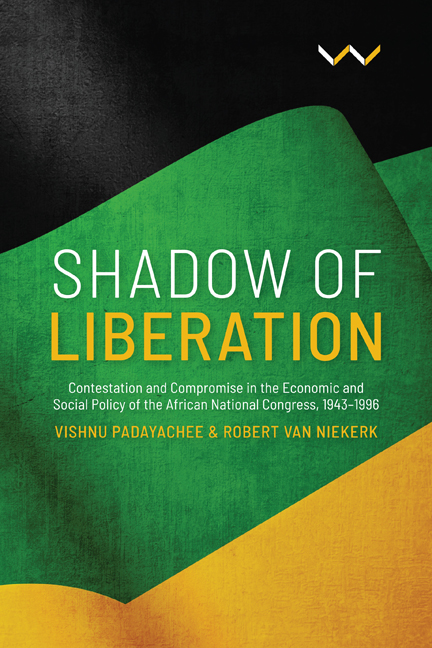 Shadow of Liberation
Shadow of Liberation Book contents
- Frontmatter
- Contents
- Acronyms and abbreviations
- Preface
- Acknowledgements
- Chapter 1 The Context of Economic and Social Policy-Making in the ANC
- Chapter 2 African Claims, the Freedom Charter and Social Democracy, 1943–1960
- Chapter 3 Incarceration, Exile and Homecoming, c.1960–c.1991
- Chapter 4 Economic Policy Debates during a Decade of Liberation, 1985–1993
- Chapter 5 On the Way to GEAR, 1994–1996
- Chapter 6 Making Sense of the Economic Policy Debates
- Chapter 7 South African Reserve Bank Independence
- Chapter 8 The Politics of Health Policy-Making in the Transition Era, 1990–1996
- Chapter 9 Interpretation and Conclusion
- Notes
- Bibliography
- Index
Chapter 6 - Making Sense of the Economic Policy Debates
Published online by Cambridge University Press: 20 January 2022
- Frontmatter
- Contents
- Acronyms and abbreviations
- Preface
- Acknowledgements
- Chapter 1 The Context of Economic and Social Policy-Making in the ANC
- Chapter 2 African Claims, the Freedom Charter and Social Democracy, 1943–1960
- Chapter 3 Incarceration, Exile and Homecoming, c.1960–c.1991
- Chapter 4 Economic Policy Debates during a Decade of Liberation, 1985–1993
- Chapter 5 On the Way to GEAR, 1994–1996
- Chapter 6 Making Sense of the Economic Policy Debates
- Chapter 7 South African Reserve Bank Independence
- Chapter 8 The Politics of Health Policy-Making in the Transition Era, 1990–1996
- Chapter 9 Interpretation and Conclusion
- Notes
- Bibliography
- Index
Summary
OPPOSING INTERPRETATIONS
A number of analysts have attempted to explain how all the developments in policy-making discussed in chapter 4 happened, in particular why the ANC made the choices it did regarding social and economic policy from the late 1980s to the mid-1990s.
To date, two broad approaches to the explanation of these events can be discerned: one best articulated by Patrick Bond (2000) in Elite Transition: From Apartheid to Neo-Liberalism in South Africa; the other advanced by Alan Hirsch (2005) in Season of Hope: Economic Reform under Mandela and Mbeki. Our analysis departs from both, though we do share some elements of Bond's argument.
Bond is correct when he notes that there is yet ‘no conclusive statement about what is happening and how we should confront it until more arguments are tested against time and opposing view points’ (2000: 2–3). We began our project 15 years after Bond made this statement and 26 years since the unbanning of the ANC. We believe that this distance from those heady and hotly contested events does offer some advantages, especially as we have interviewed many of the actors in that unfolding drama, from opposing sides, hopefully satisfying the point made by Bond of the need to seek and understand opposing viewpoints. But we do not expect that everyone will agree with our interpretation. We are especially sensitive to the fact that our own colleagues and comrades in the Alliance1 may find our interpretation difficult to accept, but this is how we see it based on our analysis of the evidence secured and our understanding. We fully expect future commentators to cover similar terrain, and who knows if they will come to similar conclusions to us or to very different views.
Bond's view is neatly summed up as follows: ‘A large part of the drought experienced in the realm of macroeconomic policy – which would, by 1996, decisively rule out the implementation of RDP [Reconstruction and Development Programme] social promises – stemmed from intellectual retreat by select ANC leaders’ (2000: 54). Such a retreat, it would appear, arose out of the nature of South Africa's capitalism and its integration into global circuits of ‘uneven and combined’ development, which locked in the policy options open to the ANC leadership during the transition to democracy.
- Type
- Chapter
- Information
- Shadow of LiberationContestation and Compromise in the Economic and Social Policy of the African National Congress, 1943–1996, pp. 143 - 178Publisher: Wits University PressPrint publication year: 2019
